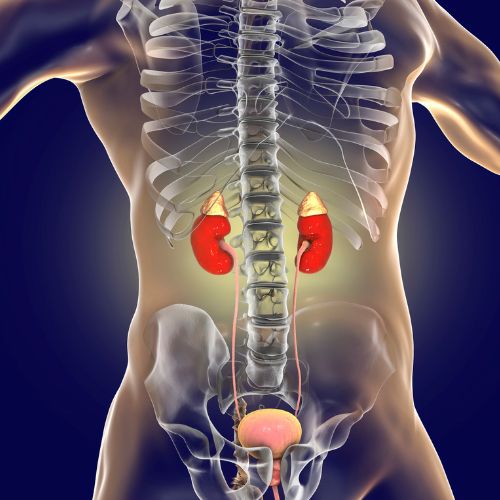A deficiency of the hormone cortisol is called adrenal insufficiency. Cortisol has many functions in the body, including maintaining blood pressure, controlling inflammation, regulating blood sugar, and regulating the sleep-wake cycle.
- Symptoms of cortisol deficiency can include fatigue, lightheadedness, low blood pressure, abdominal pain, low blood sugar, poor appetite, weight loss, darkening of the skin, and sleep problems.
- Diagnosis: the first screening test is usually an 8 AM blood test for cortisol, which is expected to be highest in the morning. If this is abnormal or inconclusive, we may order a Cosyntropin stimulation test, which involves getting an injection of a high dose of hormone to stimulate the adrenal glands. If the cortisol is still low this confirms the diagnosis.
- Treatment involves the replacement of cortisol with cortisol-like medications. The dose will be adjusted based on improvement in symptoms and blood tests for electrolytes.
A deficiency of the hormone aldosterone is also a rare form of adrenal insufficiency. Aldosterone regulates salt balance, working primarily in the kidneys.
- Symptoms of aldosterone deficiency can include lightheadedness, low blood pressure, and high potassium.
- Diagnosis: morning blood tests for aldosterone and renin can diagnose this condition.
- Treatment involves the replacement of aldosterone with a medication similar called fludrocortisone and may include salt tablets.

